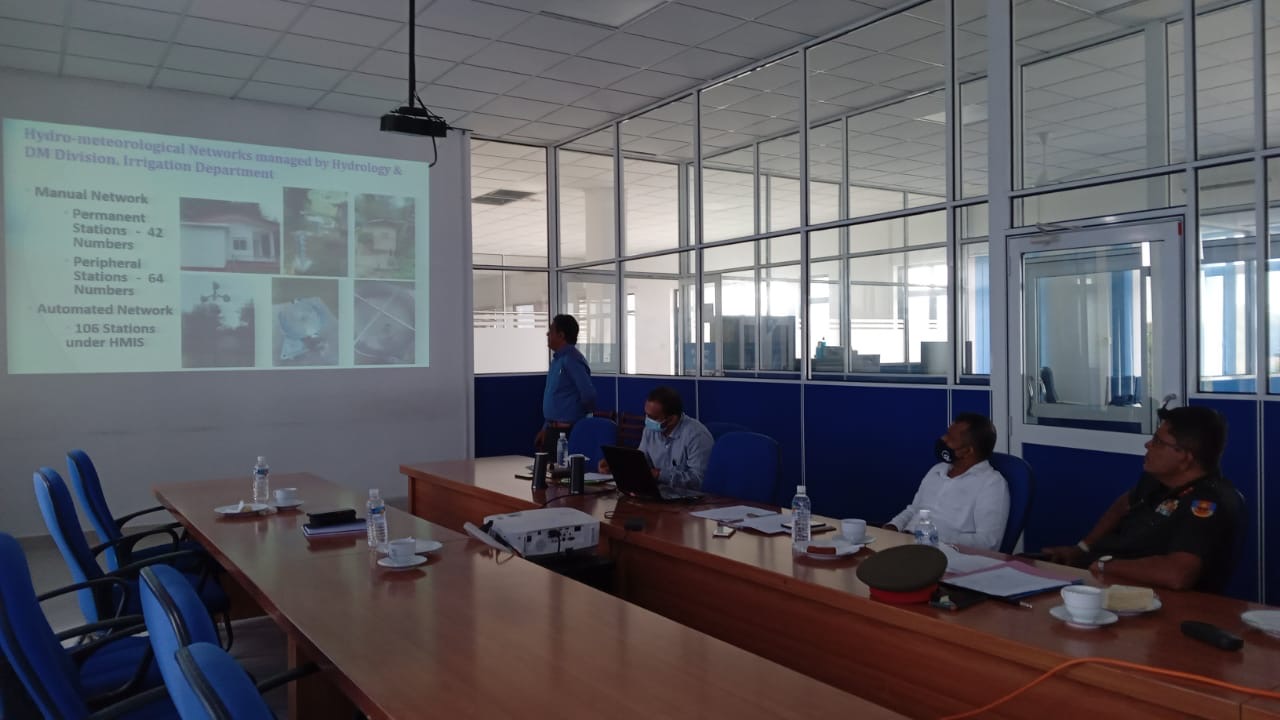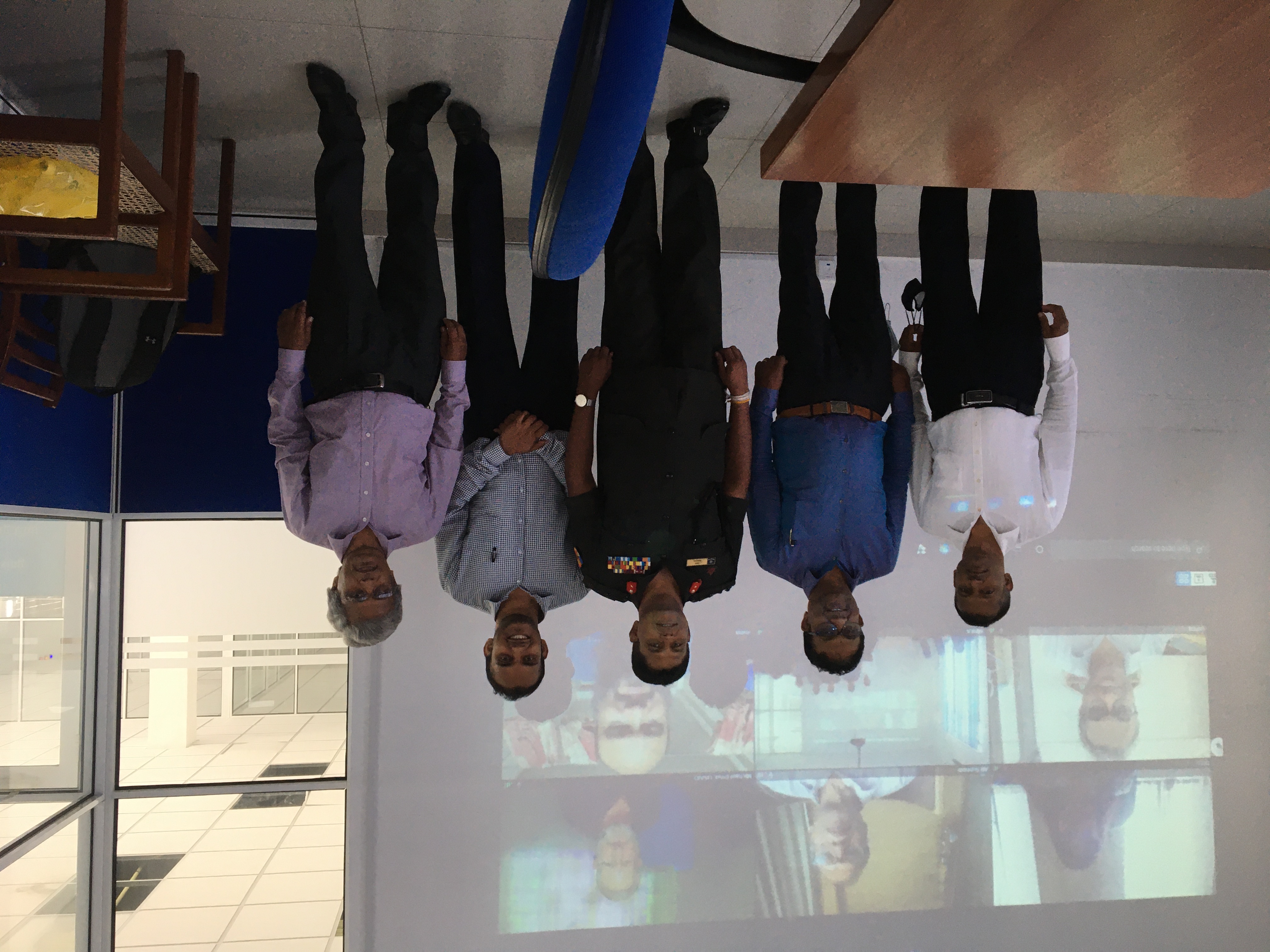Inception and Co-production Workshop: ‘Strengthening Last Mile Communications in Sri Lanka'
25 March 2022, Hybrid Session

The inception meeting and co-production workshop on ‘Strengthening Last Mile Communications in Sri Lanka’ was held successfully on Friday in hybrid mode in the presence of Sri Lankan national authorities and stakeholders, RIMES and USAID.
The ‘Strengthening Last Mile Communications’ program, which is being implemented in four countries across the South Asia region including Bangladesh, Nepal, Pakistan and Sri Lanka, aims to work on climate resilience through effective dissemination of timely early warning information among last-mile users for improved disaster preparedness and risk mitigation. The initiative is funded by the United States Agency for International Development (USAID) through the University Corporation for Atmospheric Research (UCAR) and is implemented by RIMES.
The inception workshop discussed key areas of intervention in the pilot districts in Sri Lanka: Kalutara and Ratnapura. According to the Disaster Management Centre (DMC) in Sri Lanka, these two districts recorded the highest flood events during 2016-18 extreme precipitation events, mainly triggered by the Southwest monsoon rains.
During the workshop, the lead national technical agencies- Department of Meteorology (DoM), Irrigation Department (ID), National Building Research Organization (NBRO) and the Disaster Management Centre (DMC) discussed current capacities for forecasting, monitoring hazards and communicating hazard risks till the last-mile users. The speakers talked about various products and services available within the technical agencies for monitoring and forecasting various hydro meteorological hazards.
Dr. Shiromani Jayawardena of the Department of Meteorology appreciated the significant efforts made by the relevant hazard technical agencies and disaster management authorities for improving the lead-time of multi-hazards as well as the overall disaster preparedness and disaster risk management of the at-risk communities in the island. She opined that in recent years, the number of human lives lost has been decreasing despite the significant increase in the decadal frequency of hydro-met disasters. Stating that only around two-third of the Early Warning information was being transmitted up to the last-mile beneficiaries, Dr. Jayawardena pointed out the need for enhancing last-mile communications as well as improving the overall multi-hazard early warning systems through participatory and holistic engagements.
The workshop documented the existing dissemination pathways of Multi-Hazard Early Warning (MHEW) till the last-mile users, identified some key gaps in Early Warning generation capacity of the respective technical agencies that could be addressed in a planned manner to ensure timely communication to local stakeholders and last-mile beneficiaries. This would allow the transformation of forecasts, advisories, bulletins, warnings among others into actionable information for response and community outreach.
A comprehensive understanding of these advisories and warnings coupled with understanding of local level information needs would support development of streamlined local level guidelines and forecast-based early action protocols for better disaster preparedness and risk management at vulnerable local communities. The project aims at capacity building and training for local authorities to improve their technical know-how on disaster risk assessment and thereby integrate risk management into creating sustainable medium- to long-term plans.
A robust MHEWS via an integrated ecosystem of decision-support system (DSS) tools at the Department of Meteorology (DoM), Irrigation Department (ID) and the Emergency Operations Centre (EOC), Disaster Management Centre (DMC) is built into the project for enabling seamless risk management in Sri Lanka.This is an integral part of the overall RIMES Master Plan (2021-25) co-developed with the Government of Sri Lanka addressing the five pillars of the early warning information value chain.
